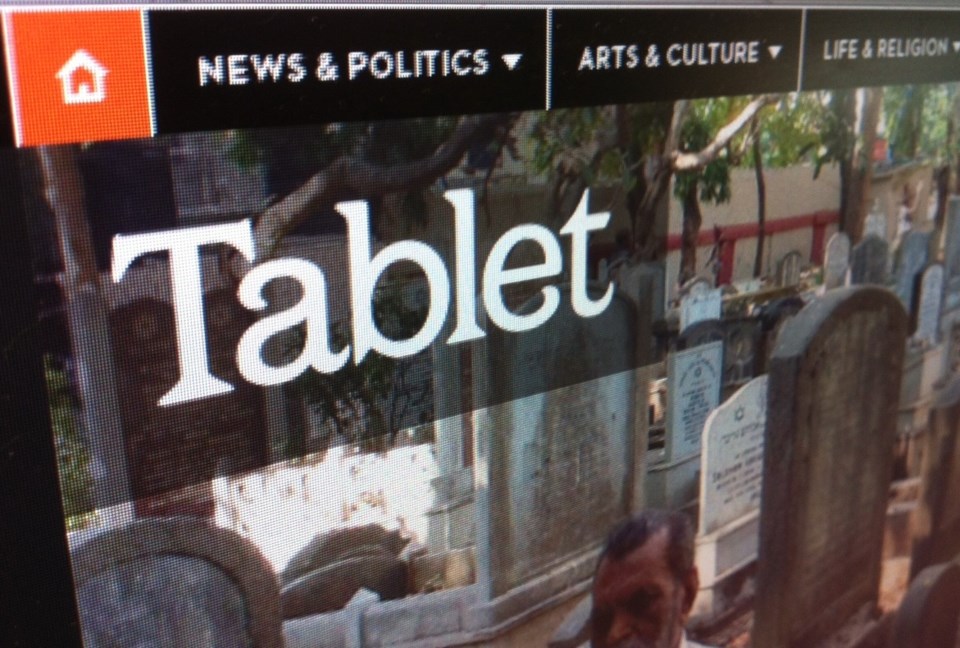Let me answer that for you: Not bloody likely.
But that's the solution offered by Tablet magazine, an online Jewish news, politics and culture publication that has faced the same dilemma with online commenters as every other online publication, everywhere.
If you attempt to comment on one of their stories, you find this:
Tablet is committed to bringing you the best, smartest, most enlightening and entertaining reporting and writing on Jewish life, all free of charge. We take pride in our community of readers, and are thrilled that you choose to engage with us in a way that is both thoughtful and thought-provoking. But the Internet, for all of its wonders, poses challenges to civilized and constructive discussion, allowing vocal—and, often, anonymous—minorities to drag it down with invective (and worse). Starting today, then, we are asking people who'd like to post comments on the site to pay a nominal fee—less a paywall than a gesture of your own commitment to the cause of great conversation. All proceeds go to helping us bring you the ambitious journalism that brought you here in the first place.
They go on to say that they welcome discussion of their articles through social media, links to which are prominently displayed at the tops of their articles.

As you can see, there are many people using social media to share — and presumably discuss — one of their stories. You will also notice there are no comments on the article page.
So, really, Tablet has succeeded in moving the conversation away from their webpage and onto social media. Where they don't have to deal with it.
It's a bit of an abdication of responsibility for the conversation around their story. But I understand it. Comments are troublesome for most news outlets.
(Worse, from my perspective, are all those lost pageviews from commenters.)
This is not a new conversation. Nor is the idea of doing something drastic like this to deal with it. Others have chosen to do away with commenting completely. I wrote about Popular Science's decision to do this back in January 2014. (They also encouraged commenters to take to social media.)
It continues to be a challenge for timescolonist.com as well.
We moderate a lot of comments through the course of a week and delete a bunch of them, even though our policy of fair comment and no personal attacks is clearly stated on every page.
We have even taken the extreme step of blacklisting users on 114 occasions during the past two years.
Here are some of the reasons given for blacklisting users:
- racist
- sexist
- abusive
- lewd
- vulgar
- spammer
- off topic
- offensive
- travesty
- offensive screen name
- fake account
- troll
- troll accuser
- attacking other commenters
We can also whitelist commenters, allowing them to bypass moderation filters. So far, we have no one on that list.
Sounds bad, doesn't it?
Not really. But we do have problems and it leads to lots of discussion about the value of commenting at all. In one Facebook group I'm part of, the issue was raised like this:
"I've decided comments on news stories are mainly worthless. Bunch of uninformed opinions from barely educated people who don't bother to read past the headline. These people may appear to bring social media momentum to the story but they're really contributing to the idiocracy of misinformation and sublime ignorance."
My response to the group: "I call those people 'readers.' "
Of the thousands of comments we get each month, only a small percentage colour outside the lines.
Comment away, but always heed the advice I give my eight-year-old son: "Treat people the way you want to be treated."



